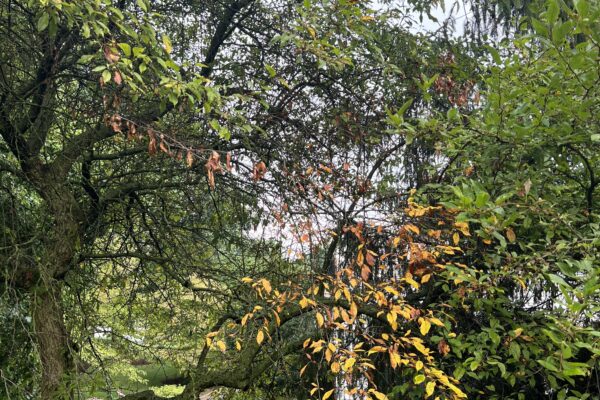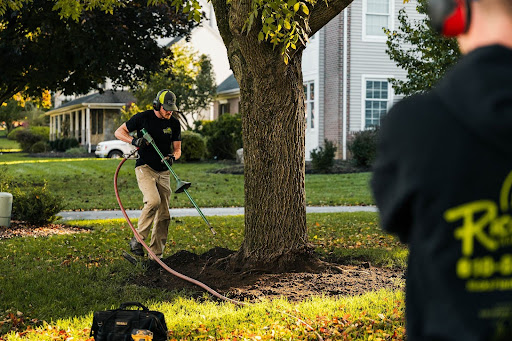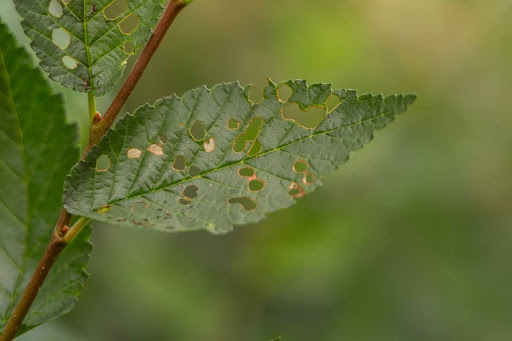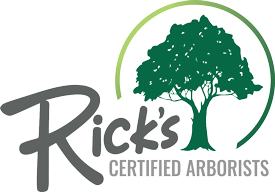Notice those sticky spots and bumpy growths growing on your once-pristine plants? It’s not a strange new plant texture – it’s Scale insects, tiny sap-sucking invaders quietly wreaking havoc on your precious greenery. Left unchecked, these persistent pests can weaken your plants, stunt their growth, and even leave them vulnerable to disease.
Here at Rick’s Certified Arborists, we have extensive industry experience and specialized expertise to effectively address Scale insect problems. We offer a wide range of residential tree care services, including treatments for Tree Planting, Insect and Disease Control, Growth Regulations, Deep Root Feeding, Trunk Injections, Soil Injections, and more. If you’re dealing with Scale insects infesting your trees, contact us for a permanent solution!
Not in West Chester, PA? We’re also available to provide Scale insect treatment to the following neighborhoods:
- Media, PA
- Pottstown, PA
- Phoenixville, PA
- Collegeville, PA
- Downingtown, PA
- Glen Mills, PA
- Malvern, PA
- Wilmington, DE
What’s the Scoop on Scale Insects?
Scale insects might be tiny, but they can cause big problems for your trees and shrubs alike. These small, sap-sucking insects attach themselves to branches, leaves, and stems, making it hard for your plants to thrive. They produce honeydew, a sticky substance that attracts mold and other pests, further harming your beloved trees and shrubs.
There are two main types of Scale insects: armored Scales and soft Scales. Armored Scales, as their name suggests, have a very prominent, hardened protective covering that can be round, oval, or elongated. Soft Scales, on the other hand, have a softer, more flattened body that may be waxy or mealybug-like in texture.
Common Plants and Trees Affected
Several tree species are particularly susceptible to Bacterial Leaf Scorch. Among them are the Red Oak, Black Oak, and Pin Oak, which are common in West Chester, PA. These trees can add significant beauty and value to your property, making it even more important to protect them from diseases like BLS.
Signs of a Scale Insect Infestation
Knowing the signs of a Scale insect infestation can save your trees from severe damage. Look for small, round, or oval bumps on the stems, leaves, or branches of your plants. These bumps can be brown, white, or even cottony, indicating the presence of adult-Scale insects. You might also notice a black, sooty mold on your plants, a byproduct of the honeydew produced by these bugs.
Another sign to watch for is yellowing leaves or stunted growth. If your plants seem less vibrant or are dropping leaves prematurely, it could be due to Scale insects. Regularly inspecting your plants, especially those that are known host plants, can help you catch infestations early and take action before the damage becomes extensive.
Our Scale Insect Treatment Services
At Rick’s Certified Arborists, we offer comprehensive Scale insect treatment services designed to protect your plants and trees. Our team of experts will assess the severity of the infestation and create a customized treatment plan tailored to your specific needs.
Our approach focuses on the entire plant, ensuring that both the visible Scale insects and any hidden larvae are eliminated. We also pay attention to natural enemies of Scale bugs, such as beneficial insects, to help keep the pest population under control naturally.
Eco-Friendly and Safe Solutions
We understand the importance of using safe and eco-friendly methods to treat Scale insect infestations. Our treatments, like Horticultural oil, are designed to be effective against soft Scales and other types of Scale bugs while minimizing harm to the environment.
We utilize other organic treatments, like OMRI-approved Horticultural oil, and integrated pest management techniques to ensure your plants remain healthy without compromising safety. Our goal is to provide you with a solution that works while keeping your garden and the surrounding environment safe and thriving.
Perks of Professional Scale Insect Treatment
Opting for professional-Scale insect treatment offers numerous benefits. First and foremost, you get the expertise and experience of trained arborists who know exactly how to tackle Scale infestations. We identify the specific type of Scale bug affecting your plants, such as White Prunicola Scale and Cottony Maple Scale, and use targeted treatments for effective results.
Moreover, professional treatment saves you time and effort. Dealing with Scale insects can be a tedious and ongoing task. By hiring Rick’s Certified Arborists, you ensure that your trees receive the best care possible without the hassle of handling the problem yourself. We provide regular monitoring and follow-up treatments as needed, ensuring your plants stay healthy year-round.
Preventing Future Scale Insect Infestations
Prevention is key to keeping Scale insects at bay. Regularly inspecting your plants and trees can help catch infestations early. Pruning affected branches and leaves can also reduce the spread of these pests. Maintaining good plant health through proper watering, fertilization, and mulching can make your plants less susceptible to Scale insect attacks.
Another effective prevention strategy is to introduce natural enemies of Scale insects into your garden. Beneficial insects, such as ladybugs and parasitic wasps, feed on Scale bugs and can help control their population naturally. At Rick’s Certified Arborists, we can advise you on the best practices for preventing future infestations.
Need Scale Insect Treatment in West Chester, PA? Call Now!
Is your landscape losing its luster? Not sure how to control Scale insects? Contact us at Rick’s Certified Arborists and let our team of experts provide the professional Scale insect treatment your garden needs. We’ll help eliminate your plants’ Scale insects so you can reclaim the health and beauty of your landscape.
FAQs About Scale Insect Treatment
The time it takes to see results can vary depending on the severity of the infestation and the treatment used. Generally, you may start to see improvement within a few weeks, but full recovery can take several months as the plant regains health.
It’s a good practice to inspect your plants regularly, especially during the growing season. Depending on the severity of past infestations and the types of plants you have, professional inspections once or twice a year can be beneficial.
Yes, Scale insects can impact fruit trees. They can weaken the tree and reduce its ability to produce healthy fruits. In severe cases, the infestation can even lead to the death of the tree if left untreated.
The crawler stage for Scale insects is when they are in their juvenile form and actively crawling on plants to find a suitable place to feed. This stage is crucial for the spread of infestations as crawlers can easily travel from plant to plant, causing widespread damage. It’s important to catch and treat Scale insects during this stage before they mature into adult forms and become more difficult to control.
No, Scale insects and Spider Mites are not the same thing. While both are common pests that can affect fruit trees, they belong to different insect families. Scale insects have a hard protective covering and feed on plant sap, while Spider Mites have eight legs and pierce plant cells with their mouthparts to suck out the contents. The treatment methods for these two pests may differ, so it’s important to correctly identify which pest is infesting your tree.

Can a Pear Tree Recover From Fire Blight?

Will Gloomy Scale Kill My Maple Tree?

How to Improve Tree Health & Soil With AirSpade

